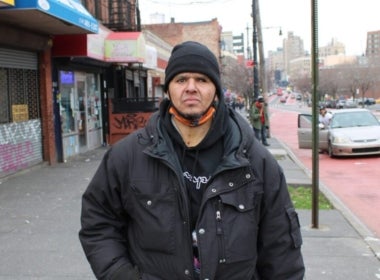Key to the success of the Warmline are the trained social work, nursing, and pre-med students who field calls and facilitate a warm handoff over the phone to the lead certified recovery specialist, Nicole O’Donnell. While the quantity of calls to the Warmline has been modest, the quality of the connections made have been life-changing. Callers, who often sound nervous, skeptical or sometimes desperate when they call, often end the call filled with hope. Nicole has found that telling people that she will “meet you on the other end” has led to remarkable rates of same-day engagement among Warmline callers. While the Philadelphia Department of Public Health has compiled a helpful list of resources for people who use drugs, the person-first approach of the Warmline team seems to facilitate unprecedented engagement.
It is fitting to write about the Warmline as we emerge from the holiday season, which can be an isolating and lonely time of year for many people. We are facing a resurgent pandemic that has once again closed businesses in city and filled our hospitals. An estimated four Philadelphians die daily from an overdose. Now, more than ever, we need tailored and equitable services and policies for people who use drugs. We need them to know that we have always cared.
The COVID-19 pandemic has taught us that lowering the barriers to treatment is not only possible, but also long overdue and effective. Connections to treatment through telephone—whether directly to a provider offering medications via telehealth, or to a peer in recovery who is trained to connect individuals into care—must continue in our post-pandemic world. Lives depend on it.

